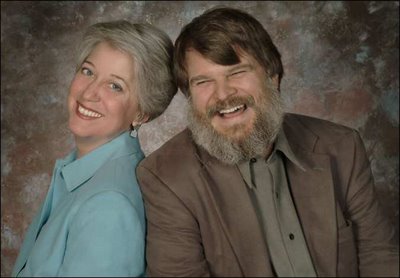"I did but tell her she mistook her frets": Shakespeare and the Lute
 Every cultural institution in the city will be taking part in the Kennedy Center's new festival, Shakespeare in Washington (the Folger Consort, reviewed earlier this month, already got into the game). It will continue through June, and by the end of it, dedicated concert-goers will probably have heard every piece that could conceivably be connected to the Bard, probably more than once. On Sunday, the National Gallery of Art inaugurated a series of three concerts for the festival in its Sunday free concert series.
Every cultural institution in the city will be taking part in the Kennedy Center's new festival, Shakespeare in Washington (the Folger Consort, reviewed earlier this month, already got into the game). It will continue through June, and by the end of it, dedicated concert-goers will probably have heard every piece that could conceivably be connected to the Bard, probably more than once. On Sunday, the National Gallery of Art inaugurated a series of three concerts for the festival in its Sunday free concert series.
Two legends of the American early music scene, soprano Ellen Hargis and lutenist Paul O'Dette, gave a recital called Shakespeare's Songbook. As described by Hargis from the stage, the concept was to combine pieces actually sung or even just referenced in the plays of Shakespeare with some of the greatest hits of his lifetime, what she called "the playlist from Shakespeare's iPod." She also acknowledged that Prof. Ross Duffin (Case Western Reserve University, where Hargis also teaches) deserves part of the credit for the program. (Hooray, Musicology!)
As expected, this was an excellent recital, although the odd acoustic of the West Building's West Garden Court did not favor the delicate style of this repertoire. From a seat very close to the performers, I could hear every note O'Dette plucked and all of the nuances and crisp diction of Hargis's performance. However, audience members farther back, in spite of the use of an acoustical shell, were not so lucky. The program included a few anonymous pieces for lute alone, as well as four selections for the cittern, a jangly banjo-like instrument that finds its echo in Appalachia. There was only one piece by John Dowland, the only musician to be named in the works of Shakespeare (apparently no longer attributed to him, however):
Dowland to thee is dear, whose heavenly touchSome of the highlights included a full rendition of all 18 verses of the famous tune Greensleeves, mentioned by Mistress Ford in The Merry Wives of Windsor. It is a lover's complaint, made by a man who has spent considerable sums of money on clothing and "all this geare" for a woman who does not even love him. (By legend, the poem was composed by Henry VIII in reference to Anne Boleyn. It was the focus of the Folger Consort's Christmas concert, reviewed last month.) Some of the songs were of lesser quality but of great historical interest, like the anonymous ballad that compressed the entire plot of King Lear into a set of stanzas and the descriptive battle ballad My Lord Willoughby's Welcome Home.
Upon the lute doth ravish human sense;
(from The Passionate Pilgrim)
Stephen Brookes, Hargis and O'Dette (Washington Post, January 16) |
The second concert in the Shakespeare series at the National Gallery will feature the Baltimore Consort (January 21, 6:30 pm). Only a few pieces on the program overlap with this concert. No tickets are required, but arrive early to get a good seat.
For a concert quite like this one, also free, go hear mezzo-soprano Barbara Hollinshead and lutenist Howard Bass this evening (January 16, 6 pm) at the Kennedy Center Millennium Stage. This program, Songs from Shakespeare's Troupe, will also be broadcast live on the Internet.





















































No comments:
Post a Comment